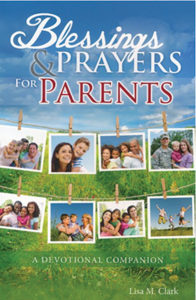 |
Warning: The two articles this month are a completely accurate portrayal of life with children. Tantrums happen. Parents lose it. If we’re being honest, most of us will admit that we have been there. This is us.
How do we stop that cycle, though? How can we maintain our cool when emotions are running high? Read these articles by Meg Clemons-Smith and Jenni Schubring and you’ll have some new parenting tools to help manage the next meltdown.
—Nicole Balza
My screams and my toddler’s screams were interrupted by my husband as he walked through the front door. “You need a time-out,” he said in his calm, deep voice.
“Yeah, she does,” I quickly responded in an exasperated tone.
“No, Mommy, I was talking to you,” my husband responded.
I was furious! I shot him an evil glare and stormed out of the room. I slammed my bedroom door, sat on my bed, and started to cry.
Feeling helpless
As I sobbed, I wondered, How did it get to this point? When did I become the mom who communicates with yelling and screaming? I had spent the last ten years working as a behavioral therapist. That was my job. That was my educational background. I could encounter any of my teen or adult clients in crisis and be their calming force. Why couldn’t I manage my two-year-old?
I overheard my husband and my daughter in the other room singing a song from a popular children’s show. One of the lyrics was “Take a deep breath and count to four. 1-2-3-4.”
In that moment, I stopped and closed my eyes. I took a deep breath and counted to four. When I got to four, I said a quick prayer, “God, forgive me and help me, please!” I walked out of the room to my daughter who was still upset. When she saw that I had calmed down, her whole demeanor changed. She too became calm.
Remembering that we are not alone
All of a sudden, all my training and education came back to me. Here was my daughter having a real emotional outburst, and by losing my temper, I had just added to her chaos. Instead, I needed to be sharing and contributing my calmness to help ease her anxiety and anger. She needed guidance and correction, but it wasn’t going to be effective if I met her big emotions with even bigger emotions. She simply needed me to help her regulate and mirror appropriate actions and reactions. Together we needed the love and understanding of Jesus.
Three years later, I have another daughter, and I spend my weekdays with her and two other toddlers. Every so often I find myself at my breaking point. Screaming into a pillow seems like the only logical option. In these moments, I close my eyes, take a deep breath, count to four, and say a prayer. I remind myself of Philippians 4:13, “I can do all this through him who gives me strength.” I remind myself that God knows my weaknesses and still loves me. He will give me the strength to get three screaming children out of the grocery store. He will give me the patience to let a two-year-old buckle her own car seat by herself, even if it takes 20 minutes. He will give me the courage to say no, even when it’s difficult.
We as parents don’t need to be anxious. We are not doing this alone. We can talk to God about our needs and ask for his help . . . and he will hear us.
Meg Clemons-Smith
I was shopping at Walmart, seven-months pregnant, in winter in Wisconsin, with my two- and three-year-old in tow. My two-year-old was giving me all the signs that I had kept him out too long, but I didn’t listen.
He lost it.
I tried to escape before it got too much for me to handle. I made it to the entryway where the carts were—and where all the snowy slush was. He started to flail, right in the middle of the slushy mess of the entrance. Pregnant and holding the hand of my three-year-old, all I could do was watch him melt down, screaming and crying, as people quickly walked around him. When he was done, I reached for his hand, and we walked back to our car.
It looks different when they get older. Words lash out, and doors slam.
It is so easy as parents to react with the same kind of behavior. So how do we keep from losing control ourselves? Here are some simple (but not always easy) disciplines we can incorporate:
- Pray: Be proactive. Start your day in prayer. Pray for your children. Pray for your relationship with them. Pray that you see your children through God’s eyes. Prayer helps me with my mindset when it comes to most things—especially my children.
- Pause: When your child loses control, practice the power of pause. Don’t react. Sometimes you may have to leave the room. Sometimes you may have to sit and wait. But pause before you move forward.
- Seek understanding: Our children usually have a reason to act out. I have found it easier to respond with compassion when I remember that most of the time it has nothing to do with me and more to do with something else. Maybe something went wrong at school, maybe they had a challenge with a friend, maybe they are simply tired. Setting my pride aside to get at the heart of the matter takes time. Waiting until they have settled down and having those hard conversations are so valuable. By doing so, you create safe space for connecting with your child.
I know that my default is to remove PAUSE and add ENGAGE. But most of the time engaging in the middle of your child losing control only fuels the fire. Focus on the fruits of the Spirit—“love, joy, peace, forbearance, kindness, goodness, faithfulness, gentleness and self-control” (Galatians 5:22,23). We are led by the Spirit; this is a perfect time to tap into that power and show love.
These may sound like simple practices, but they’re not easy. But here’s a fun realization: Pray, pause, and seek understanding are good tools in almost every circumstance. If we live these practices, we also model them to our children. How great is that?
Jenni Schubring
 Looking for some biblical encouragement and guidance from God’s Word? Blessings and Prayers for Parents points readers to our heavenly Father as the only perfect parent and speaks to a parent’s need to hear God’s specific words of forgiveness and grace. Available from Northwestern Publishing House, nph.net, 800-662-6022.
Looking for some biblical encouragement and guidance from God’s Word? Blessings and Prayers for Parents points readers to our heavenly Father as the only perfect parent and speaks to a parent’s need to hear God’s specific words of forgiveness and grace. Available from Northwestern Publishing House, nph.net, 800-662-6022.
Author: Multiple authors
Volume 107, Number 04
Issue: April 2020
- Parent conversations: How can parents and kids manage stress?
- Parent conversations: What do your prayers for your children include?
- Parent conversations: How do we resist making our parenting law-based?
- Parent conversations: What Bible passages do you turn to most as a parent?
- Parent conversations: How can we help kids develop positive, healthy habits?
- Parent conversations: What tactics do you use to encourage children to tackle difficult tasks?
- Parent conversations: How can we model good listening skills for our kids?
- Parent conversations: How do we help our kids move on from mistakes?
- Parent conversations: How can we instill gratitude in our children?
- Parent conversations: How can parents find the balance between being too restrictive and too permissive?
- Parent conversations: How can we teach kids to be good friends?
- Parent conversations: What life skills will help young people as they transition to adulthood?
- Parent conversations: How do we discuss death with our children?
- Parent conversations: What does it look like for a father to be a strong Christian leader?
- Parent conversations: How can we help young adults stay engaged in the church?
- Parent conversations: What do parents need to know about video games?
- Parent conversations: How do parents not let worry get the best of them?
- Parent conversations: How do we teach our kids to value all people?
- Parent conversations: When parenting philosophies differ
- Parent conversations: How can we help today’s overwhelmed teens?
- Parent conversations: How can parents maintain a healthy marriage?
- Parent conversations: You might be a Lutheran parent if . . .
- Parent conversations: Parenting post–high school: What is a parent’s role?
- Parent conversations: How can families use the hymnal in their worship life at home?
- Parent conversations: What should Christian parents teach their children about gender?
- Parent conversations: What is vocation? How does it apply to parenting?
- Parent conversations: Why do siblings fight? How should I react when they are fighting?
- Parent conversations: How do we teach children resilience?
- Parent conversations: How do I approach vaccines as a Christian parent?
- Parent conversations: How can I explain the Sixth Commandment to a young child?
- Parent conversations: How can I help my child have an optimistic outlook?
- Parent conversations: What if we can’t follow our Christmas traditions this year?
- Parent conversations: What are ways to foster a rich prayer life in children?
- Parent conversations: How can I let the gospel shine as I parent?
- Parent conversations: How should I handle a child’s separation anxiety?
- Parent conversations: How should families prepare to go back to school?
- Parent conversations: How does a teen’s brain work?
- Parent conversations: How much should I monitor my child online?
- Parent conversations: How can parents reassure children during an uncertain time?
- Parent conversations: How can I stay calm when my child is out of control?
- Parent conversations: Should I give something up for Lent?
- Parent conversations: How can I keep my child engaged in attending church?
- Parent conversations: How can we help a stressed-out kid?
- Parent conversations: How can we nurture a proper view of “stuff”?
- Parent conversations: How involved should parents be in a child’s homework?
- Heart to heart: Parent conversations: Are we modeling kindness for our children?
- Heart to heart: Parent conversations: What’s the best parenting advice you’ve received or given?
- Heart to heart: Parent conversations: How should we handle it when people undermine our parenting decisions?
- Parent conversations: How can we prepare children for summer camp?
- Heart to heart: Parent conversations: What’s a parent’s role as a child dates?
- Heart to heart: Parent conversations: How do parents find contentment?
- Heart to heart: Parent conversations: How can we help a family with a sick parent?
- Heart to heart: Parent conversations: How can parents model healthy cell phone use?
- Parent conversations: How can we protect kids without scaring them?
- Parent conversations: What does your family’s bedtime routine look like?
- Parent conversations: What do I need to consider before I give my child a cell phone?
- Parent conversations: How can we teach gentleness and strength at the same time?
- Parent conversations: What should we do when our children grow silent?
- Parent conversations: What should we teach our children about the Reformation?
- Parent conversations: Do we want our children to be leaders or followers?
- Parent conversations: How does a parent’s role change over time?
- Parent conversations: How should I handle a disagreement with my child’s teacher?
- Parent conversations: What are the building blocks of a strong parent/child relationship?
- Parent conversations: What is our goal as parents?
- Parent conversations: What Christmas traditions do you cherish in your family?
- Parent conversations: How can we raise a generation that cherishes life?
- Parent conversations: What are the best Bible story books for family devotions?
- Parent conversations: Why should children obey their parents?







